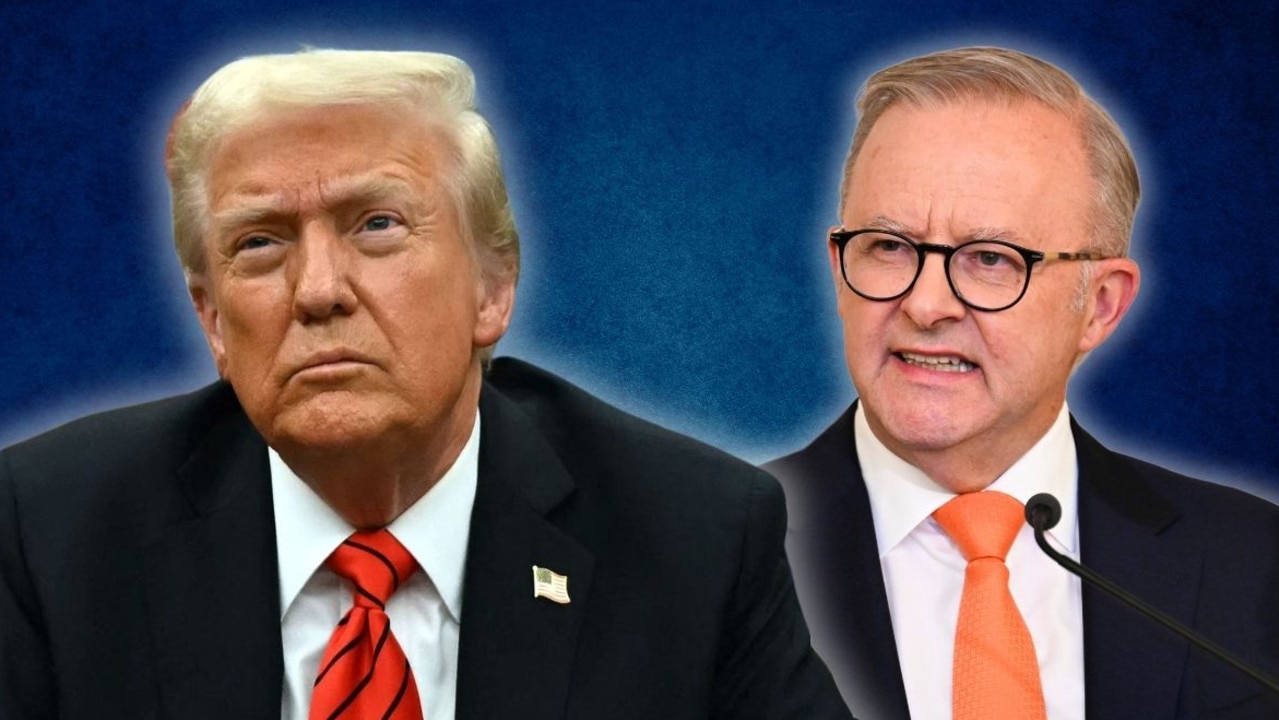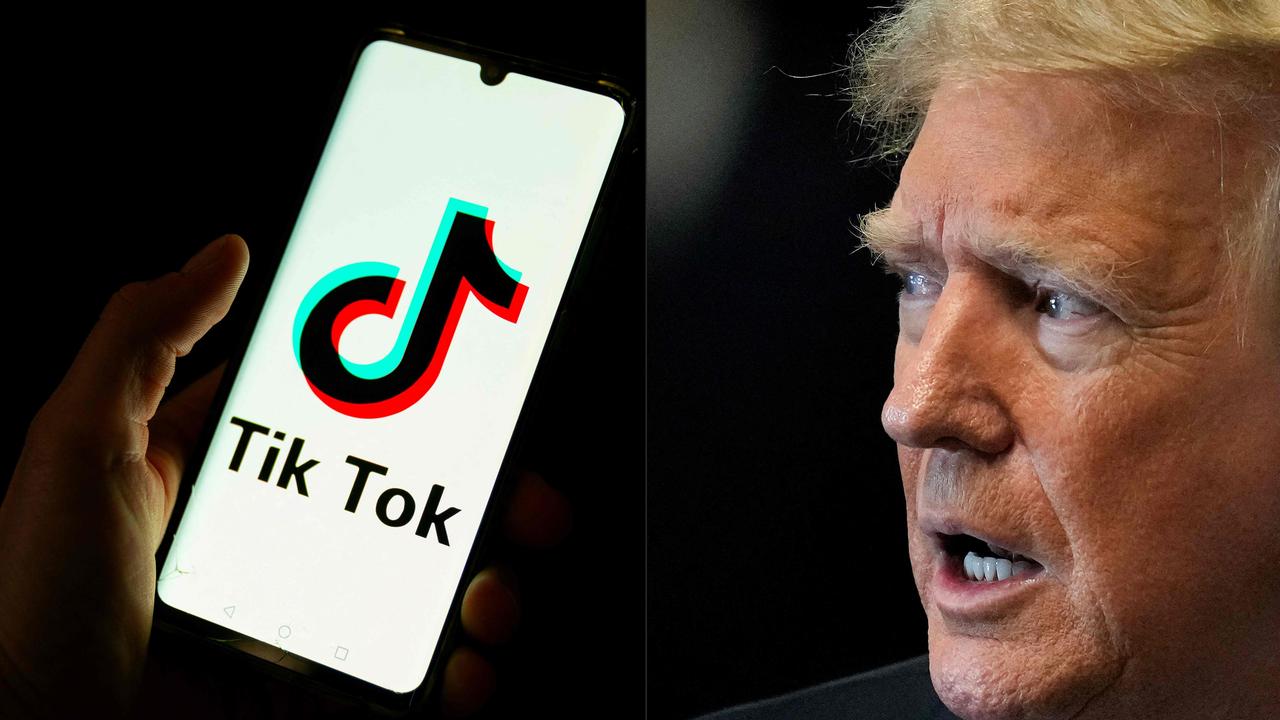Inside the state of Pennsylvania that could decide the fate of the US election
The biggest battleground is up for grabs and Donald Trump and Kamala Harris are pulling out all the stops. But it won’t be easy. See the video.
US Election
Don't miss out on the headlines from US Election. Followed categories will be added to My News.
The Keystone State is the key. That’s Pennsylvania – a microcosm of the US with its mix of urban, suburban and rural communities, and the biggest battleground up for grabs.
Donald Trump and Kamala Harris will both descend on Pennsylvania for their last full day of campaigning, knowing whoever wins the state will likely be America’s next president.
The former president won here in 2016 by 44,292 votes out of 6.1 million. Four years ago, Joe Biden held on by 80,555 votes out of 6.9 million. And for the last few weeks, the candidates have been essentially tied in the polls.
To eke out an advantage, Mr Trump and Ms Harris have bombarded Pennsylvania with rallies, mass doorknocking, and a record $US576m worth of political commercials on TV.
“We’re going to do it,” the Vice President said during a recent stop in Philadelphia, the state’s biggest city. “Victory runs through Philly. It runs through Pennsylvania.”
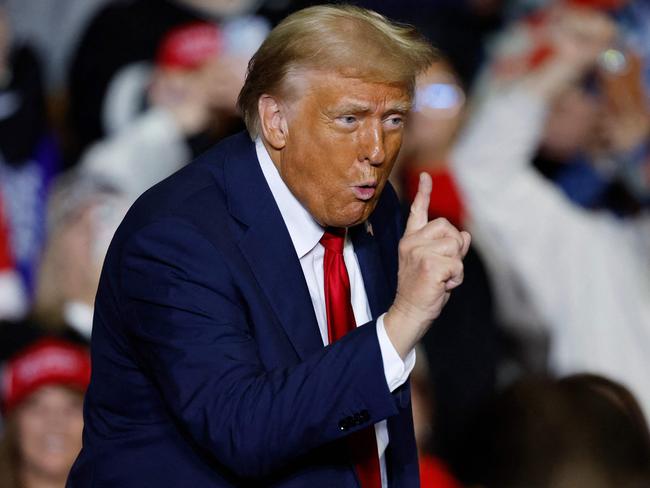
Philadelphia is the best place to start to understand the state’s electoral dynamics.
In 2020, Mr Biden received 604,175 votes in the city, compared to 132,870 for Mr Trump. Philadelphia is 40 per cent Black and 15 per cent Hispanic, demographic groups that typically break heavily towards Democrats, while Republicans tend to thrive in the state’s outer suburban and regional areas made up of more white working class voters.
So Ms Harris has to run up the numbers in Philadelphia. But her campaign has been worried about a lack of enthusiasm among young Black and Hispanic voters, especially men.
Former president Barack Obama laid this out in stark terms recently in Pittsburgh, the state’s second-biggest city, saying it was “more pronounced with the brothers” and it was “not acceptable” for men to sit out the election if they were reluctant to vote for a woman.
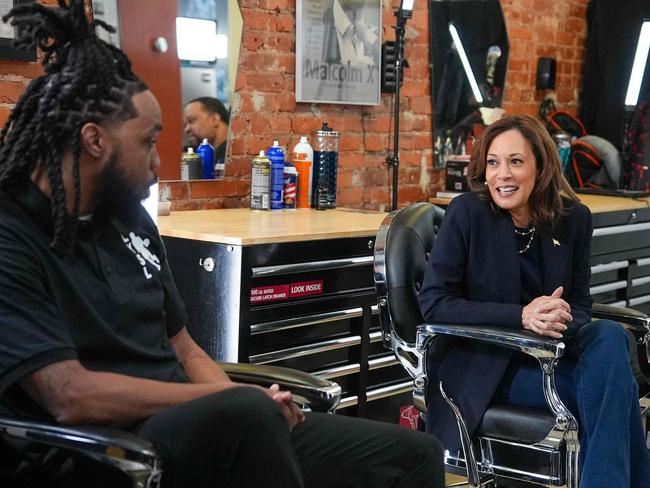
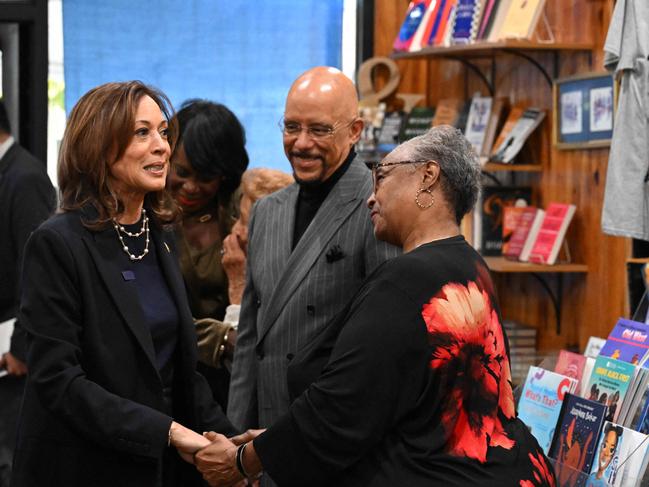
To turn the tide, Ms Harris used a recent trip to Philadelphia to visit a barber shop, a men’s basketball team and Hakim’s Bookstore, the city’s first Black-owned bookshop. Its owner Yvonne Blake acknowledges young Black men have been hesitant about the Vice President.
“They’re kind of the opinion that nothing ever changes, so they’re not really buying into hope for the future,” she said, “but I think they’re coming around.”
Ms Harris’s appearances were in Pennsylvania State Representative Amen Brown’s district, and the 37-year-old Democrat says it was “the attention that my neighbourhood needed”.
“Prior to Vice President Kamala Harris getting on the ticket, the Black men might have been leaning another way or not leaning any kind of way,” he said, “but now that Kamala’s in, I think we’ve got her back … Black men gonna show up and show out.”
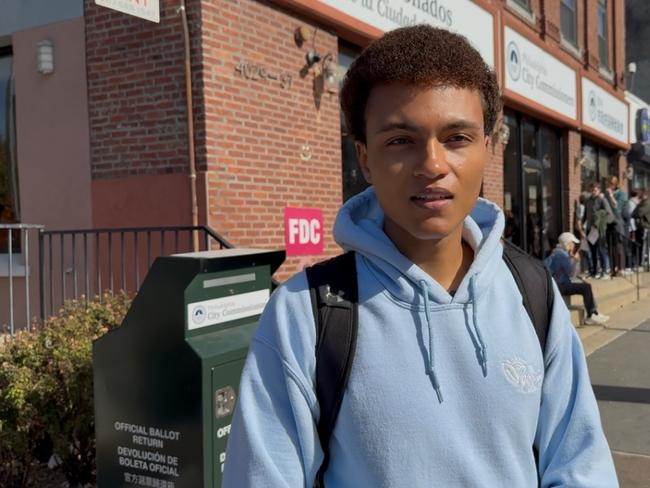
His office is next to a busy early polling station, where university student Solomon Gonzalez is supporting Ms Harris because of her focus on the middle class and the right to abortion.
“What I’ve seen of other potential candidates is concerning in what directly affects my family, whether here or in Puerto Rico,” he said.
While he was waiting to vote, he saw a video of a comedian at a Trump rally the night before calling the US territory “a floating island of garbage”, which only reaffirmed his fears.
But other young men in Philadelphia prefer Mr Trump, like Flannan Riley, a 22-year-old student who is walking past a Democratic rally headlined by Mr Obama and singers Bruce Springsteen and John Legend. He typifies the “bro vote” the Republican is targeting.
“From the outlook I get every day, it’s more Trump, and I think it’s building,” Mr Riley said.
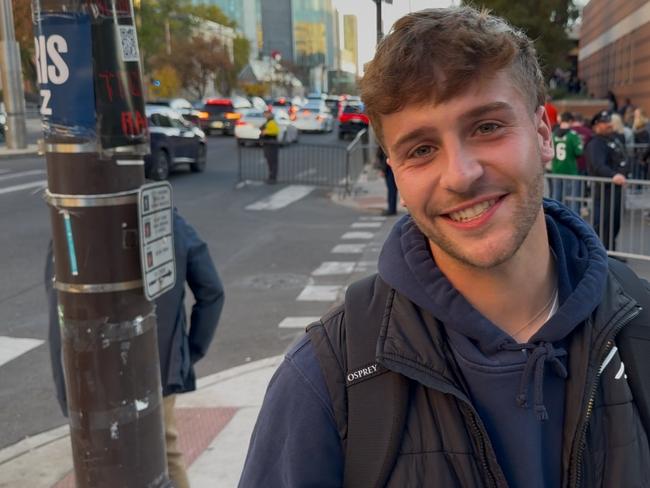
“He’s a guy you can connect with as a dude … He’s got a great family, a great business.”
Mr Riley says most of his friends and fellow Trump supporters are “union guys” – the kind of blue-collar workers welded to the former president outside of Philadelphia.
The 78-year-old is particularly popular in places like Butler, the town where he was shot during a well-attended rally in July, only to return a month ago for an even bigger event.
“I could be on a gorgeous beach someplace,” Mr Trump said, “but I’d rather be in Butler.”
In some smaller communities, the Harris campaign has been going door-to-door trying to peel off the Republican’s supporters. Mr Trump, meanwhile, has falsely claimed the state “is cheating, and getting caught, at large scale levels rarely seen before”.
In Lancaster County, officials blocked 2500 possibly fraudulent voter registration forms. Al Schmidt, a Republican and Pennsylvania’s top election official, said it showed the system’s safeguards were working. But Mr Trump claimed: “We caught them cold, 2600 votes.”
Mr Schmidt and his team are bracing for further disputes about the integrity of the election, especially once the polls close. Unlike other states, Pennsylvania’s rules prevent workers from pre-sorting early votes, meaning its results are unlikely to be confirmed on the night.
David Becker, the founder of the nonpartisan Center for Election Innovation and Research, says this is “a vacuum in which disinformation will thrive”.
If the election does indeed come down to Pennsylvania, America might be waiting a while.



